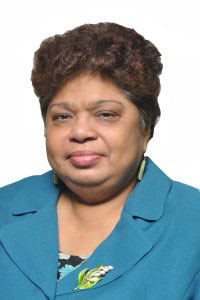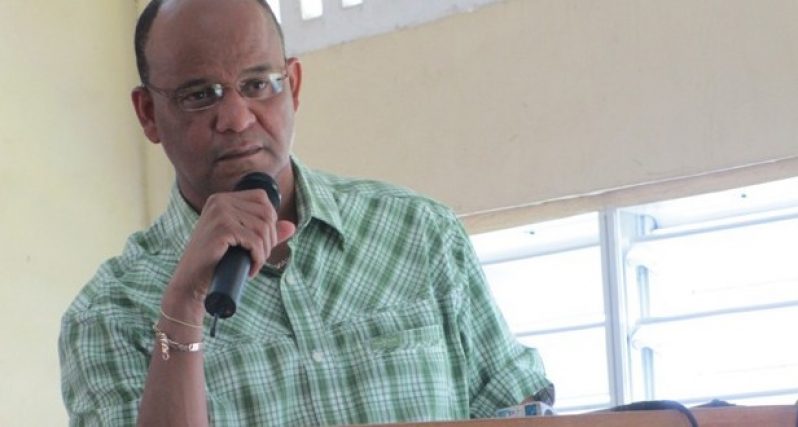OPPOSITION Chief Whip Ms. Amna Ally has revealed that the main opposition coalition, A Partnership for National Unity (APNU), has concerns in regard to significant shortages of Guyana Elections Commission (GECOM) personnel who are needed to be trained to aid in conducting General Elections slated for early next year.

An APNU press conference held at the Office of the Leader of the Opposition on Hadfield Street last Friday saw Brigadier (rtd) David Granger explain that, on Thursday last, an APNU team comprising six Members of Parliament (MPs) met with GECOM’s “full commission” to discuss issues related to the upcoming General Elections.
Among the issues discussed were GECOM’s readiness; Code of conduct; GECOM’s seventh cycle of registration; GECOM’s notification and location of polling stations; and GECOM’s conduct of elections.
Further elaborating on GECOM’s readiness, the Opposition Chief Whip noted: “Indeed, we are concerned about the shortage of personnel who have applied to work on elections day.”
Ally also sought to urge members of the public who are qualified enough to “feel free to apply” to work with GECOM on elections day, so as to aid in a smoother and more professionally executed electoral process.
Prior to this, however, the PPP also made a call on GECOM last Monday to ensure that measures are being put in place to ensure a select group of competent and suitable persons is recruited for polling day.
General Secretary of the PPP, Mr Clement Rohee, made the call at the party’s weekly press conference. He noted that following President Donald Ramotar’s announcement last week, that he will call General and Regional Elections in early 2015, “the process of GECOM recruiting persons for polling day is expected to take precedence and gain momentum.”
Rohee also stated that the PPP would like to stress the importance of the quality of training of polling day staffers to avoid a repeat of the problems which occurred during the 2011 elections.
Private property
The Opposition Chief Whip, commenting on the location of polling stations, told reporters, “We [the Opposition] vehemently reject the use of private residences” for polling stations. Later expounding on this, she noted that in 2011 there was an incident wherein a person would have had a concern at a polling station and, instead of the Presiding Officer offering a response, the landlord answered.
Situations like those, she contended, compromise the venues, and her party accordingly rejects the use of private property as polling stations. “We advocate the use of Government buildings, and where it is not possible, we (should) use venues that are not compromised,” Ally said.
Acknowledging that, in some cases, use of private property is unavoidable, the Opposition Chief Whip stressed, “The onus is on GECOM to look at alternatives of erecting polling stations” in cases where the use of private property is unavoidable.
Earlier in the week, PPP General Secretary Clement Rohee had also urged that “polling stations must not be placed as a political weapon”, meaning that they should not be placed close to any of the “parties’ strongholds.”
Moreover, the ruling PPP sought to call on GECOM to involve all major political stakeholders in reviewing polling places used in the 2011 elections. “With the establishment of the many new housing schemes and the movement of people into existing schemes, a total review is needed,” Rohee said.
He pointed out that the PPP has made representation to GECOM, time and again, in regard to persons being asked to travel long distances to polling stations, especially in the hinterland and riverine communities.
Rohee reiterated that the PPP would continue to make representation on behalf of the Guyanese people, to ensure that the 2015 general and regional elections are free and fair.
(Ravin Singh)



.jpg)








